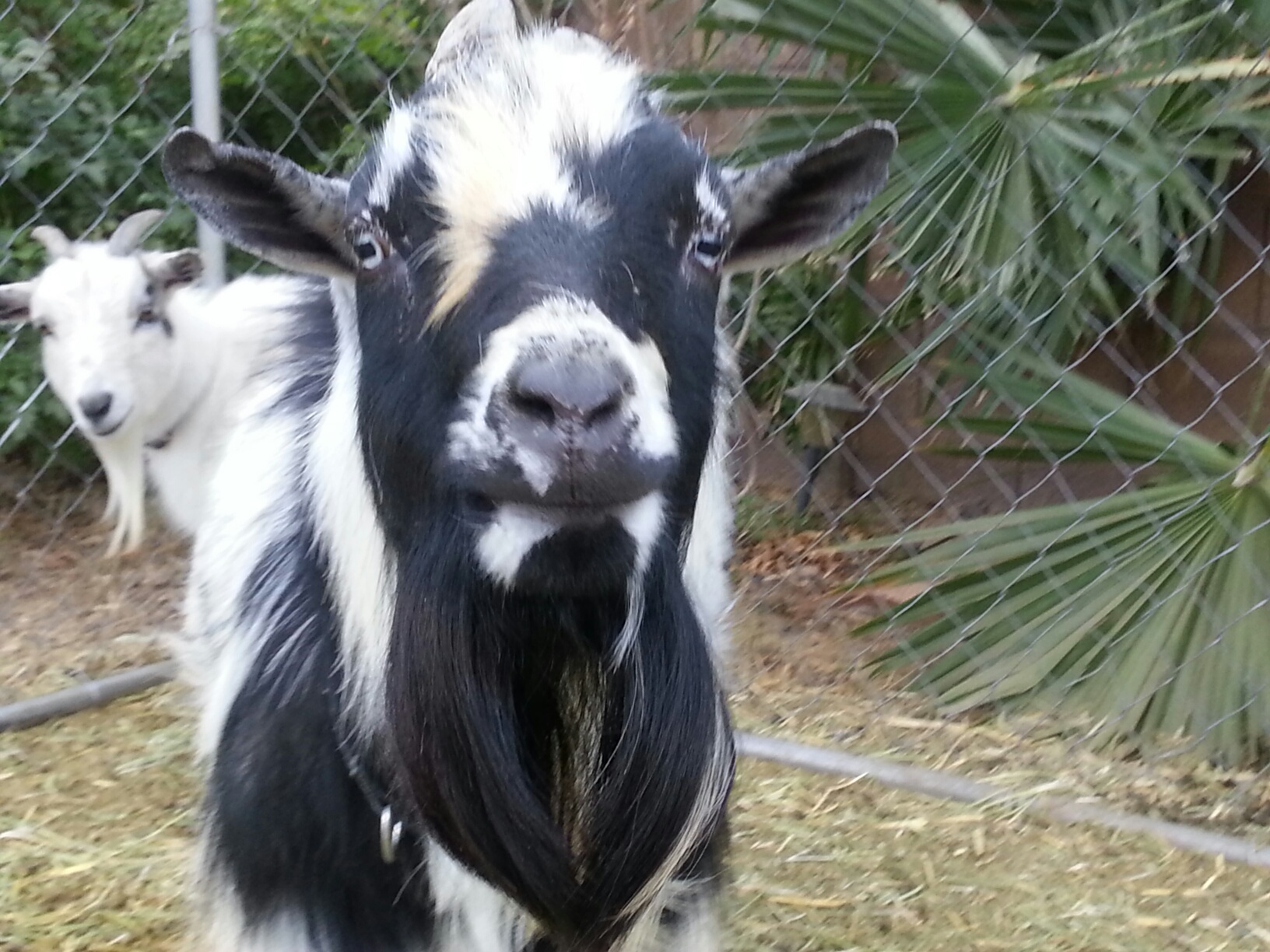Natural Shade Plants have Multiple Benefits for Livestock
Sheep and goats benefit from natural shade plants, but they are prone to damaging tree bark and limbs that are within reach. Goats in particular love to browse woody shade plants and prefer to eat shrubs and trees over grasses and weeds. Plant shade trees and large bushes outside of their enclosures and trim the lower branches to create a high canopy that throws shade into the pen.
Shade Plants Can Also Serve as Livestock Feed
If you plant fast-growing shade plant varieties that are edible to goats and sheep, they will trim the branches that grow into the pen. They are happy to do this trimming work. Nibbling on shade plant branches can supplement their diet, reducing your feed bill.
Pictured above is our buck, Cassanova, and a doe named Bisquit. Palm trees shade their pen, and they love to munch on the leaves that overhang the enclosure. Palm leaves are not toxic to them, so the goats benefit both from the shade and the food that the tree provides. Ruminant animals have sensitive systems and shade some plants are toxic to them, so take care in selecting varieties for your farm. Some helpful resources are at the bottom of this article.
Shade Plants at The Micro Farm Project
A few of the shade plants that we have grown at The Micro Farm Project are Moringa, Yellow Bells (Tacoma Stans,) Palo Verde and citrus. We have also grown corn on the west side of goat pens. Corn do not grow tall enough to provide much shade, but it does cut down on the heat as the sun begins to set in the late afternoon. And corn is an edible shade plant that goats love; the stalks provide hours of fun for them and a great deal of nutrition after the corn in harvested for human use.
Edible and Toxic Shade Plants (and Other Types of Plants)
Fias Co Farm posts an extensive list of edible and poisonous plants for goats here.
See also Cornell University’s list of plants that are poisonous to livestock here.


